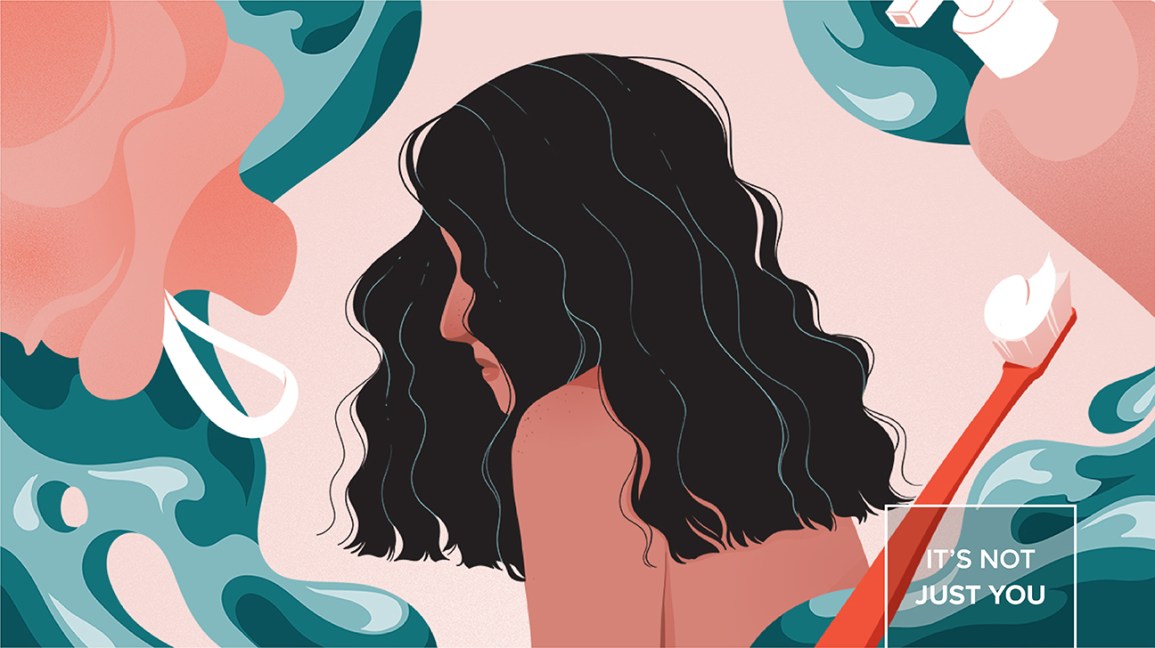
The inner workings of your battle might be difficult to discuss with others. Personal hygiene is one among several open secrets regarding mental and emotional well-being. Anxiety, sadness, and a variety of other things can all significantly impact our day-to-day lives, and one of the reasons for it is that your mental health may be at risk due to your hygiene rituals.
How Mental Health And Hygiene Are Related?
Anxiety and depression can make even the most basic of hygiene routines seem like a nightmare for some people. Skipping brushing your teeth in the mornings or taking fewer showers is not because of slothfulness. Still, these everyday challenges have pushed the habit of keeping your routines on the back burner, affecting your mental health.
For others, cleaning and cleanliness can become an obsession, resulting in increased stress and a constant source of anxiety. It is conceivable that discussing this aspect of your health struggle is difficult due to the stigma associated with having a healthy, clean house. But in reality, this discussion can help you clear out your reflections.
Cleanliness and Hygiene – An Obsession
On the opposite end of the spectrum, persons suffering from mental health conditions such as obsessive-compulsive disorder (OCD) and anxiety may consider hygiene and cleanliness as a necessary component of their daily routine. OCD is not just about cleaning but is obsessions (disturbing ideas you can’t shake) and obsessive activities (rituals or actions you do to alleviate your anxiety).
A connection between OCD and compulsive cleaning can be seen in how OCD sufferers struggle with their routines and habits. Those with OCD may practice obsessive cleaning rituals as well as organized rituals. The urge for things to be in order, clean, nice, and faultless may stem from various issues. As the problems worsen, they may begin to impact your daily routine in multiple ways.
Conscience of Hygiene
Mental health issues may have various negative effects on your hygiene practices. Being conscious of the changes to your routine can assist you in determining if they are becoming worse and beginning to harm your life. If you’re having difficulty cleaning and keeping your house clean, or if you’re continuously washing and scrubbing, it’s time to get aid from an expert.
You Are Not Alone
Numerous people have difficulties with cleanliness in several ways. Many individuals are too worried to shower, clean their teeth, or maintain an orderly house. Certain individuals are preoccupied with cleanliness and scrub their homes to satisfy their need for routine.
Interruptions to everyday routines may result from psychological and mental health difficulties that are difficult to address and communicate. It is important to realize that you are not alone. Getting a concierge will help.
What can you do?
There are several strategies to assist someone battling anxieties, such as bathing anxiety.
- It is possible to discover the cause of your reluctance to shower.
- Discuss the advantages and disadvantages of showering or bathing.
- Consider the likelihood of developing skin problems, infection, or other disorders due to a lack of consistent washing.
- Ascertain that your family and friends are aware of your worry.
- It is recommended that you join a fear-related support group.
- Communicating with people who are afraid of washing may reassure them that they are not alone.
- Individualize treatment.
- Avoid caffeine since it might contribute to anxiety disorders such as phobias and phobias.
- Search for natural therapies that might assist folks in relaxing.
- Discuss medicine in conjunction with the treatment.
Available Treatments
Behavioral Therapy
Historically, mental illness was treated primarily via psychoanalysis, a complex procedure that might take years and need more than two sessions each week. Other therapy approaches have been created in recent years to assist individuals in altering their method of monitoring their thoughts, considering and responding to emotions and their surroundings.
The most well-known is behavior therapy, which focuses on apparent behaviors is an intensive outpatient program. IOP is a kind of talk therapy, commonly referred to as psychotherapy, widely considered the most effective strategy for treating addiction problems.
Research has shown that it is very helpful in treating various mental illnesses, including anxiety disorders, depression, addictions, eating disorders, bipolar disorder, and schizophrenia. Around 75% of those suffering from particular phobias find treatment via behavioral therapy.
Exposure Therapy
Exposure treatment is conducted in a controlled environment and is useful for ablutophobia. It is conceivable that the individual turns on the shower and then stands there fully clothed. Then, enter the completely enclosed shower. Progression to more thorough and lengthy bathing, finally without clothes, should be gradual. Another possibility is to wet the sponge.
Medicinal Assistance
Medication may be effective, especially when other forms of therapy have failed or when someone is suffering from other mental health problems that need different treatment. Antidepressants and anxiety drugs are beneficial, but only when prescribed by a physician, since they may have substantial harmful effects.
